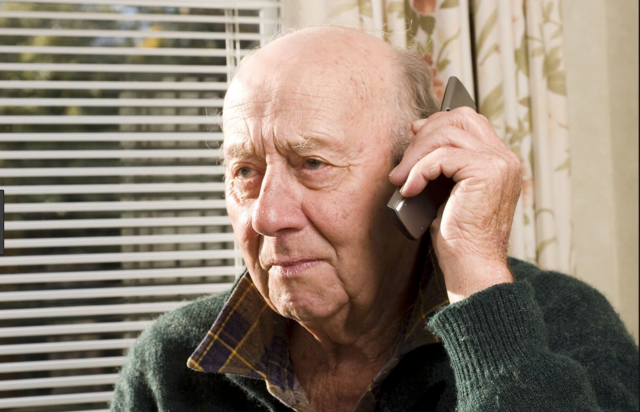(COLUMBUS, Ohio)—Ahead of National Grandparents Day this Sunday, Ohio Attorney General Mike DeWine is warning families to beware of the “grandparent scam,” which has been reported by dozens of Ohioans in recent weeks.
The scam begins when a grandparent receives a call claiming the person’s grandchild is in trouble and in urgent need of money. The caller may claim the grandchild was in a car accident, caught with drugs, or put in jail, for example. The grandparent is asked to send money immediately, supposedly to pay a fine, attorney’s fees, or other costs.
“These con artists prey on a grandparent’s worst fears,” Attorney General DeWine said. “They claim the person’s grandchild has been in an accident or is in serious trouble, but it’s all a lie. We want people to be aware of the scam and to talk to their family about it.”
Many people who report the scam haven’t lost any money, but among those who have, the average reported loss is over $6,000 this year.
Victims commonly are told to pay using gift cards (by purchasing the cards and then reading the card numbers over the phone) or by wire transfer or cash. In some cases, con artists ask victims to tuck cash into pages of a magazine and then send the magazine. With these methods of payment, it is difficult to trace or recover the money once it’s been sent.
Grandparents who send money once likely will receive additional calls requesting more money. Scam artists also may encourage grandparents not to talk to other family members about the situation, making the scam harder to detect.
Tips to avoid the grandparent scam include:
- Communicate with your family members. Talk to your family about scams and discuss how you would communicate during a true emergency. If you receive a call from a grandchild or another family member who claims to be in trouble, contact someone else (such as the grandchild’s parents) to determine if the person truly needs your help, even if you’ve been instructed not to contact anyone else. When in doubt, ask questions only your real family members would know how to answer, such as the last time you saw each other.
- Limit the amount of information you share online. Don’t post upcoming travel plans or detailed personal information online, and encourage your family members to take similar precautions. Check your account privacy settings and limit who can view your information. Be aware that scammers may use information posted on social media or publicly available online to learn more about their targets and to make their ploys seem believable.
- Be wary of unusual payment requests. If a caller demands that you pay over the phone using a gift card, pay via wire transfer, or pay by mailing cash, be skeptical. These are preferred payment methods for scammers because it is difficult to trace or recover the payment once it is provided.
The Ohio Attorney General’s Office warns consumers about scams and offers a variety of educational materials, including a phone scams checklist.
Ohioans who suspect a scam should contact the Ohio Attorney General’s Office at 800-282-0515 or www.OhioProtects.org.










